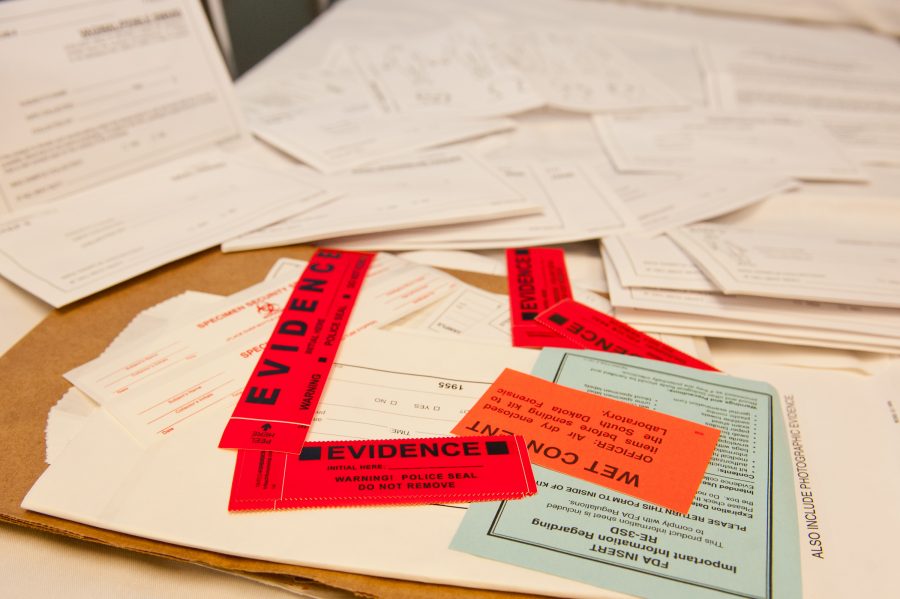After an experience as traumatic as sexual assault, knowing how to proceed after can be difficult. This Wednesday, Elisa Moyer, Amanda Howat and Michele Rice, sexual assault nurse examiners from the Lehigh Valley Health Network, outlined the details of the sexual assault forensic process in an effort to ease that difficulty.
These examiners have all received specific training to help victims who have experienced sexual assault. While they provide medical care, they also collect evidence related to sexual assaults and often appear in court as medical experts. Nurses like these are available at the Muhlenberg, Cedar Crest, and Thirteenth Street campuses of the Lehigh Valley Health Network.
The nurse examiners spoke with Lafayette students in an event titled “What’s in a Sexual Assault Evidence Collection Kit?” about the evidence collection process following a report of sexual assault in order to provide a clearer understanding of the forensic process. The three noted that the procedure typically occurs within 96 hours of an attack, though they emphasized that this is not a hard deadline. In fact, Rice spoke of an instance in which an evidence collection kit was used 120 hours following an incident.
The collection process normally entails an analysis of the clothing worn during the assault. While acknowledging the difficulty of not showering after a sexual assault, they encouraged survivors to avoid showering in order to preserve all possible evidence.
“We are there for you,” Howat said. “We want to make sure [survivors] are healthy [and] help [them] begin the healing process.”
Accordingly, the nurses said survivors can choose to hand over the evidence to the police anonymously if they wish.
This process is quite familiar on campuses across the United States. A report from the National Sexual Violence Resource Center, noted that one out of every five women and one out of every sixteen men are sexually assaulted in college, while 63 percent of assaults are not reported to the police.
“The biggest concern [for college students] is [they] don’t want [the visit] to be sent to health care,” Howat said.
The nurses ensured, however, that concerns about money or privacy ought to play no role in a survivor’s decision to report. The forensic examination and medications offered by the sexual assault nurses are covered under Pennsylvania law.
The event concluded with the nurses handing out sexual assault evidence collection kits for the students to examine. They mentioned a number of other institutions who can assist in case of a sexual assault including the Crime Victims Council, Planned Parenthood, Turning Point, the Allentown and Bethlehem Health Bureaus, as well as the Comprehensive Health Services Facility on seventeenth street in Allentown.
The nurses encouraged contacting Lafayette’s Title IX coordinator, who is current Director of Educational Equity Jessica Brown, in case of an assault. They acknowledged that they do not know everything about individual colleges in the Lehigh Valley, so contacting the proper administrators is vital.























































































































